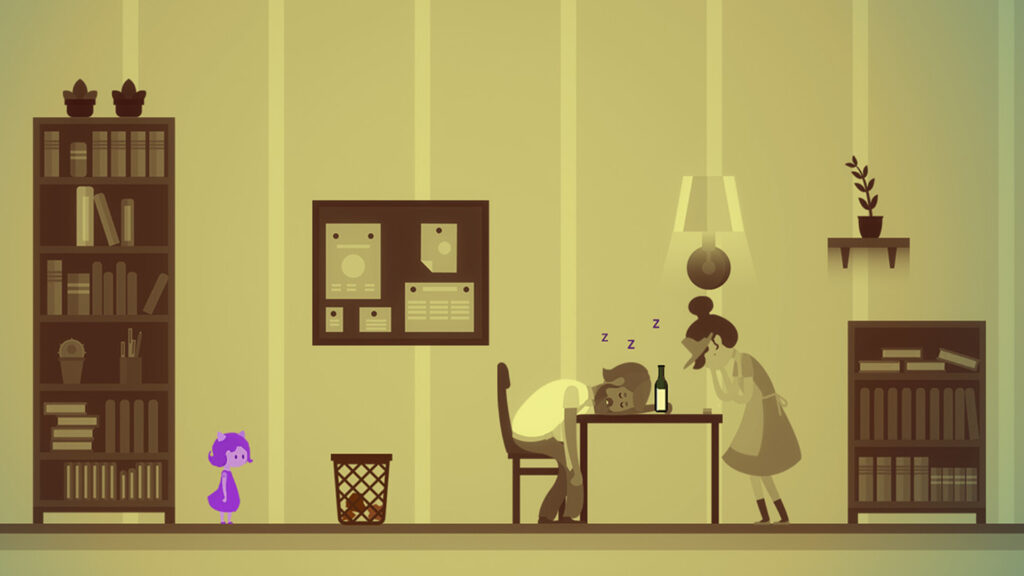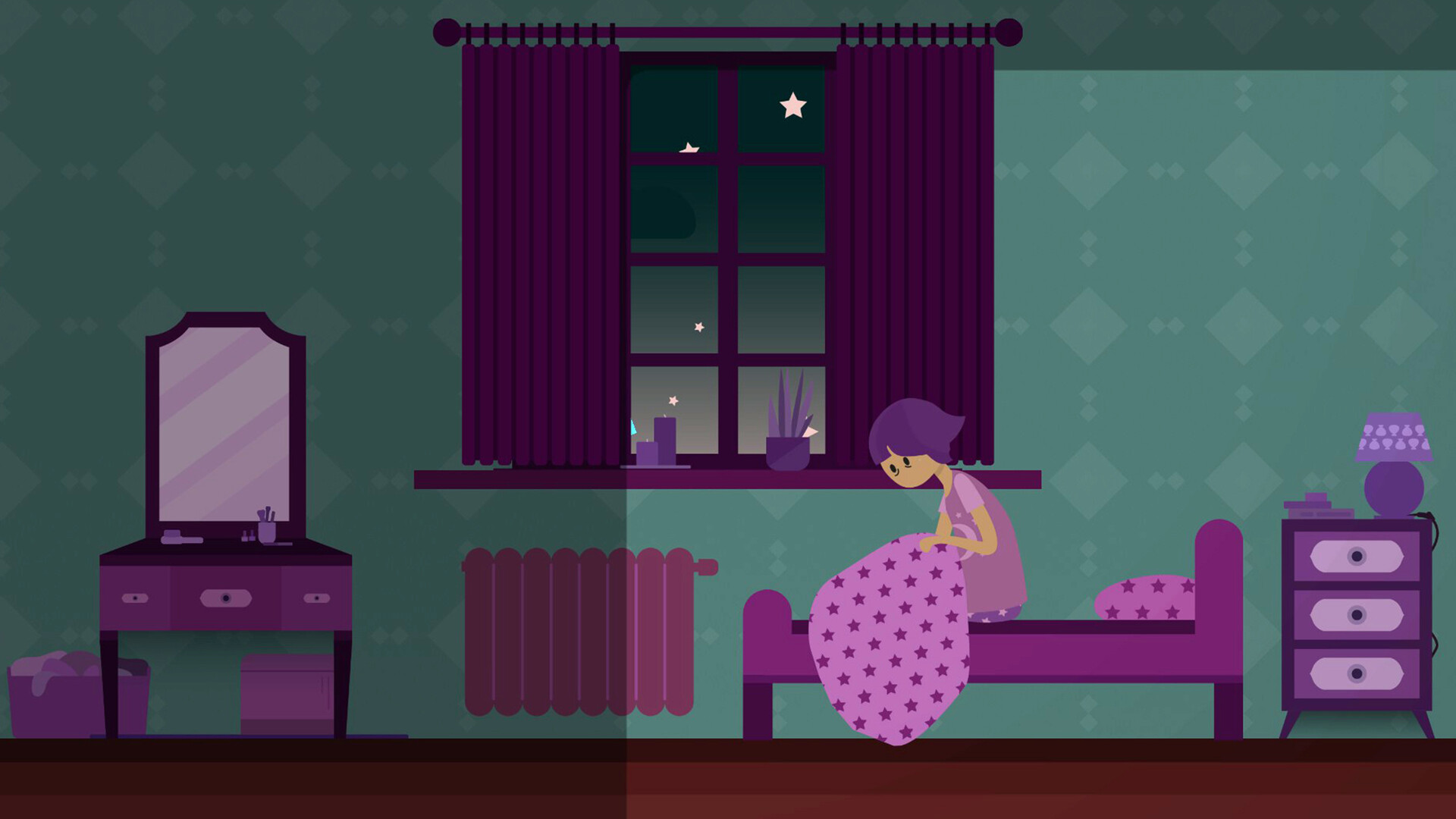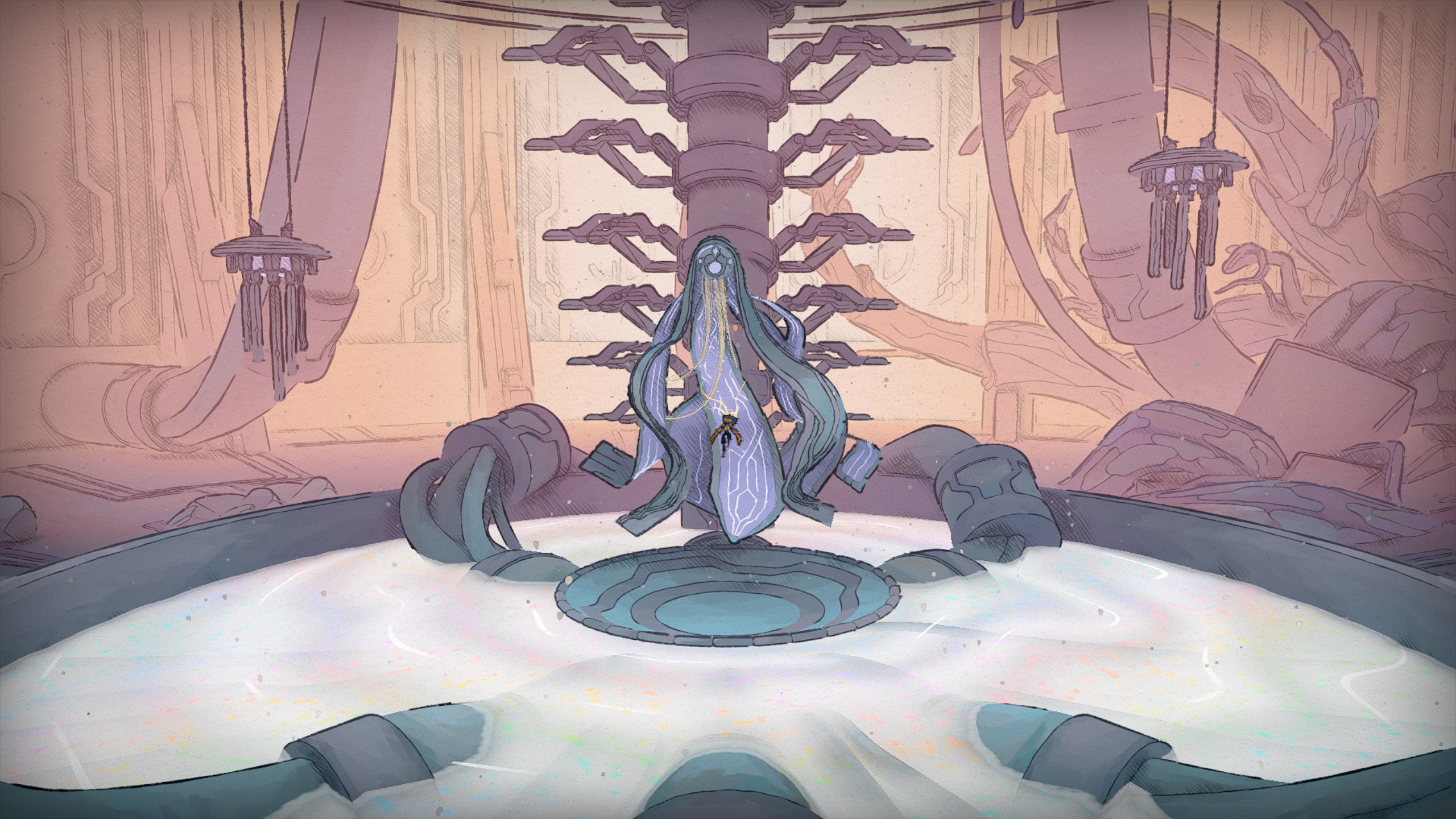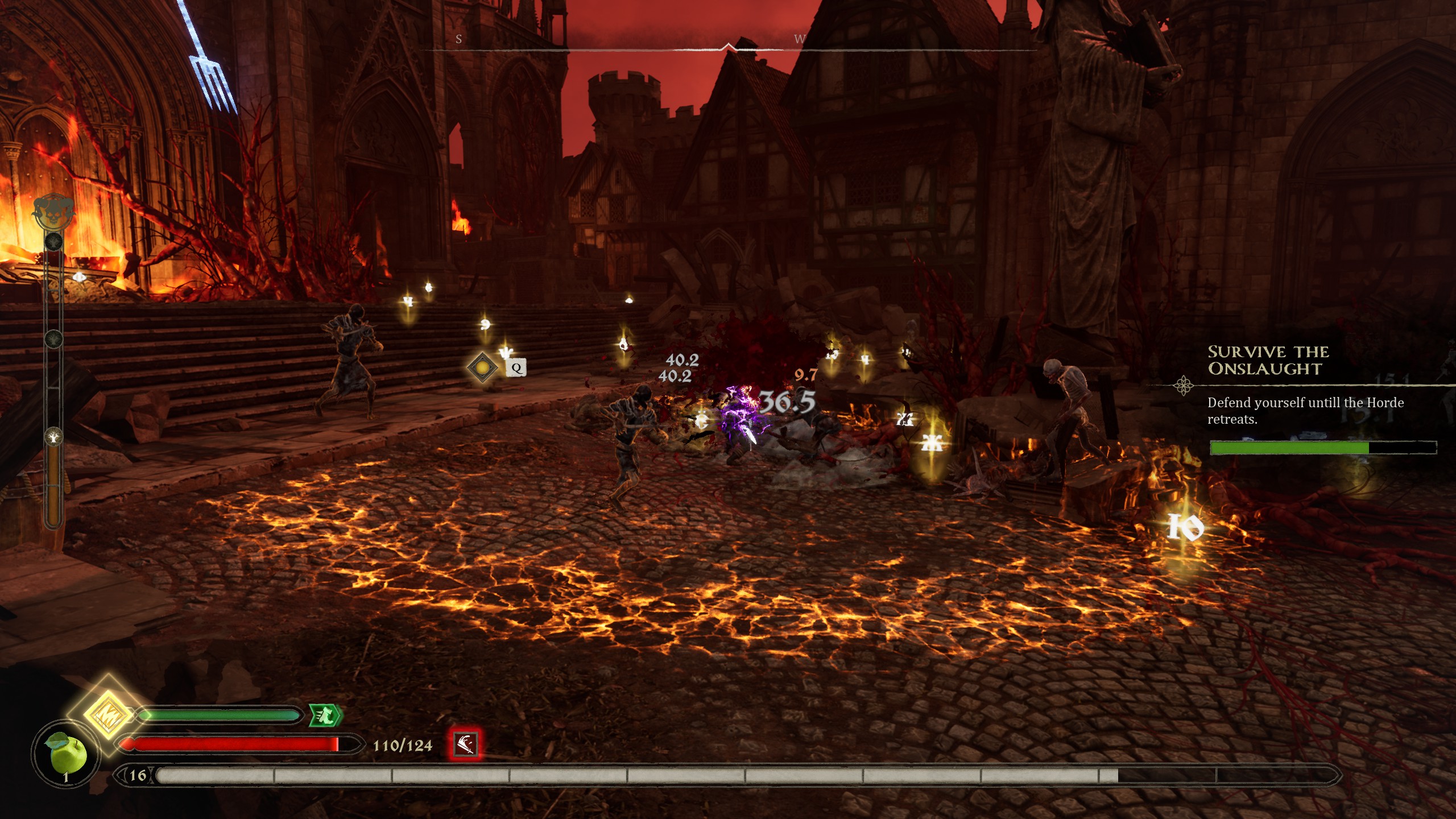In some ways, mental health remains a taboo subject and it’s only recently that the topic in video games has transitioned from discussing mental health in a harsh way to doing so with a positive spin through creative means. Blueberry does just that, focused on a woman’s point of view and breaking the mould by plunging into the struggles this underrepresented demographic has to navigate from childhood, to old age. Dive deep into Blueberry, the main character’s mind in this story-driven puzzle platformer, where you climb the Tower of Life. It’s definitely a game made by women for women. With that said, there’s a lot here that a variety of audiences can learn about the pressures of being a woman such as body shaming and the responsibilities of child bearing.
Potential trigger warning: Early on, it’s clear that Blueberry focuses on intergenerational and relational trauma. Blueberry deals with sensitive topics, such as long-term depression, parental alcohol abuse, and addiction as a cause of dysfunctional families. Suicide is also discussed in the game itself.
Step into Blueberry’s shoes
The demo begins with Blueberry putting her child, Emilio to bed. Shortly after attending to his needs, Blueberry meets a monster which represents her inner dialogue. The monster emotionally beats her down, telling her she’s a bad mother and that she will pass her mental illness down to Emilio. After a short cutscene, Blueberry realises it was all a dream, but she meets the monster again, and is forced to come face to face with her demons. The monster being used as a metaphor to represent her struggles is extremely effective. It almost gives her depression a personality and the fact that it trickles through to her dreams shows just how predominant her struggles are.
As the gameplay progresses, you’ll see the monster appear throughout the world, as the monster transitions from being an intruder in Blueberry’s mind to becoming a part of her. Navigating the past will allow you to challenge the monster and help Blueberry overcome her past, which has very much become her present. Blueberry definitely has the potential to be a tear-jerker. This is done not only through the sad, potentially painful memories, but the sombre feeling you get through making repairs, too. For example, I didn’t expect to have to revisit a childhood memory playing as a teenager, resulting in a thought-provoking sequence.

Once you walk through the first door, that’s when the platformer element of the game truly begins. You are thrown into a vibrant world and you play as Blueberry when she was a child. The controls are simple and the character moves at a fast pace. Expect to encounter some puzzles as you explore Blueberry’s past, where she is in a hurry to grow and “do all the grown up things” (we’ve all been there.)
As you play, you’ll engage in memory reconstruction, put together by puzzle pieces that will create a larger picture once the jigsaw is complete. It’s almost like putting broken pieces of Blueberry back together, but in a fun way. Memories as a child include climbing kitchen counter tops using pans to steal cookies and placing too many snacks in the shopping cart, upsetting Blueberry’s mother who can’t afford them. The world does a fantastic job at showing how negative thoughts appear through a child’s eyes. There’s a moment where a teddy bear with evil red eyes tells Blueberry that she upset her mother at the store, provoking Blueberry to respond with “I will find the money so that she loves me again.”
Throughout the demo, Blueberry’s mother fuels Blueberry’s negative self talk. This is especially true when Blueberry transitions into a teenager and heated arguments with her mother flare up. As soon as Blueberry transitions to a teenager, the platformer shifts, adding rain, thunder, and lightning, reflecting the increased intensity of emotions. Here, I even found myself feeling resentful towards Blueberry’s mother, who is identified as being the reason for Blueberry’s belief that she is a bad parent to Emilio.

The world itself shifts with Blueberry’s emotions and the impact of her memories. In the game, you’ll be faced with choices that will lead to multiple endings, based on how you choose to guide her through her past. There is a sort of heartbreak bar that shows how distressed the characters in a scene are getting. The more the bar fills up, the darker the environment gets, reflecting Blueberry’s mental state. It is possible to reduce the bar by eating snacks and consuming drinks. Seemingly, there aren’t any meaningful consequences to the bar reaching the maximum, which I would’ve liked to see.
The demo itself is short, taking me less than an hour to complete. However, the constant themes of negative thoughts, feeling responsible for the emotions of Blueberry’s family, while trying to fit in with other people Blueberry’s age does leave a lasting impact in such a small amount of time. If this is anything to go by, the full game is going to be an emotional rollercoaster and a must-play for those looking for a fresh perspective on video games as a whole.

A release date for Blueberry is yet to be confirmed, but you can wishlist the game and play the demo now via Steam.
Check out our previous feature:
Ayasa: Shadows of Silence demo impressions |




